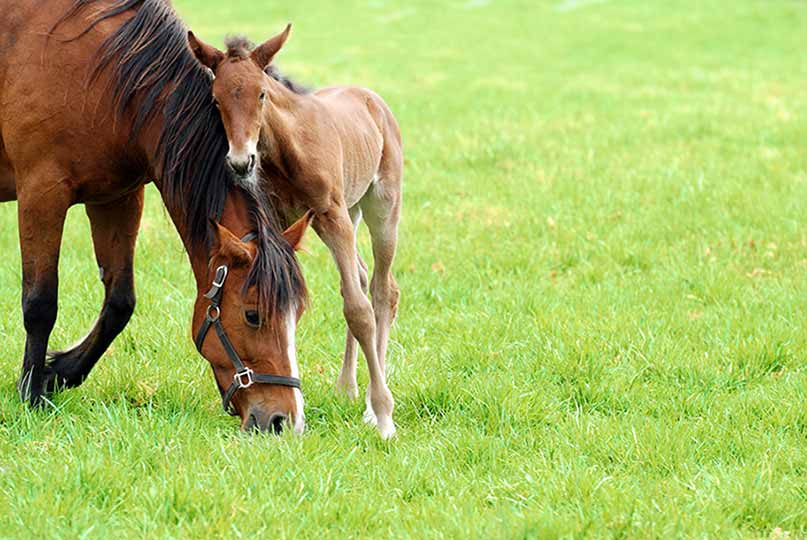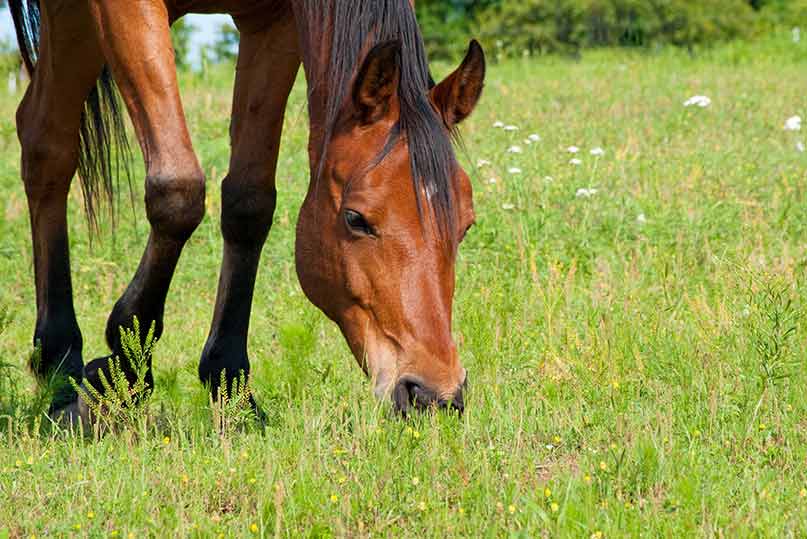
- Horses have evolved to eat a very high fibre diet, therefore this should be the main portion of their feeding. This means they require slow feeding, which is forage that takes an extended time to collect and chew over many hours of the day.
There are many rules when feeding a horse, so getting your head around them early is the foundation you need for a happy and healthy horse. Every horse is different, so here are some main factors when looking at what a horse should eat and how much:
- Consider the size of the horse and the amount of work they do
- The amount of hay or pasture your horse gets ??? if they are grazing on good pasture they will not need much hay, on the other hand, they will need more hay if they aren???t on good pasture or don???t get much of a turnout.
- Supplement pasture grazing, with hay in the winter months and drought.
- Always start off with a small amount of grain and you can adjust as necessary.
- Always adjust your horses??? food rations depending on how much work they are doing.
Roughage:
Roughage should be the main source of calories for your horse, with the rest consisting from good quality hay or pasture. However grain can be added if the hay and pasture is not enough. Horses are born to eat roughage as their digestive systems are designed to break down grassy stalks for nutrition. A horse should roughly eat 1 to 2 percent of their body weight every day.
Grain:
Grain should be fed in multiple smaller meals instead of one large meal. Many people will give their horses grain twice a day as it is often the most convenient, although it is advised to break down the amount of grain. This is more natural for the horse and also allows for them to digest it properly. If they are fed too much at once, it can alter their digestion and mean they will not get the most out of their feed.
Feed schedules:
Your horses health is at the forefront, so when you are making changes to their feed intake or type, make the changes over time, and slowly. Any differences that are sudden in their portion sizes or feed type can lead to serious health problems such as colic.
The optimal time to complete this process is over several weeks by either slowly increasing or decreasing each meal a little at a time, or by introducing their new feed by removing 25% of the original feed and replacing it with 25% of the new feed, gradually increasing the percentage each meal.
Measuring:
When feeding your horse, you should always measure by weight by either using your own scales or some at your local feed store. Once you have found out their typical ration weight, you can then begin to use your own scoop (tin can, ice cream container etc.) to have a consistent amount each feed time. The average horse (around 450kg) that relies mainly on hay will typically eat 7kgs ??? 9kgs per day. When you get your appropriate weight you can work out your portions of hay bales you???ll feed to your horse, however, always check how much your bales of hay roughly weigh as each type of hay can differ greatly.

Exercise:
If you???re planning on riding your horse, ideally you should wait at least an hour after feeding them. If the exercise you are doing is going to be vigorous, you should look to wait closer to 3 hours before riding them as a full digestive system gives their lungs less room to work and therefore makes physical activity harder.
After a horse has finished working, let them cool down completely before feeding them. Allow their breathing to come back to normal and touch their skin to make sure it is not hot or sweaty.
Routine:
Horses have an amazing internal clock that allows them to know time and therefore thrive on routine. Their feeding schedule should be consistent with meals arriving at the same time each day as a sudden change can bring on health problems such as colic in some horses.
Remember, a horse can begin to fatten if not properly exercised or if they are overfed, therefore, you have to consider which option to take (more exercise or cut down rations) when trying to get them healthier.
If you are having trouble with the proper feed and amounts, seek professional advice. An independent equine nutritionist, equine veterinarian, or some reputable feed companies will offer free advice on what to feed your horse.


